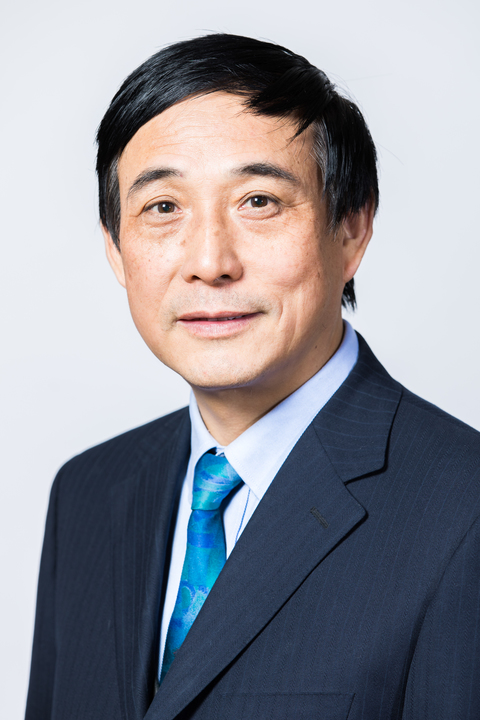
Chemical Engineering

- MEng, MSc, PhD, Chemical Engineering, Materials and Metallurgy
- Member, Institute of Cast Metals Engineers, UK
- Member, The World Society of Sustainable Energy Technologies
- Member, The World Science and Engineering Academy and Society
- Editorial Board Member, Nanoscience and Nanotechnology, Scientific & Academic Publishing Co. USA (2011-2015)
- Editorial Board Member, International Journal of Innovative Studies in Sciences and Engineering Technology (IJISSET)
- Editorial Board Member, Open Journal of Inorganic Non-metallic Materials
- Particulate materials processing
- Multiphase flows in porous materials
- Photocatalysts
- Microwave assisted gas separation

Dr. Harvey Yi Huang is a Reader in Materials Chemistry and Engineering at the University of Edinburgh (UoE), with an academic and research background spanning chemical engineering, materials science, and environmental applications. He has been awarded Fellow of the Royal Society of Chemistry (FRSC), Fellow of the Institute of Materials, Minerals and Mining (FIMMM), Fellow of the International Association of Advanced Materials (FIAAM), Fellow of the Institution of Engineers in Scotland (FIES), and Fellow of the International Association for Carbon Capture (FIACC).
Dr. Huang earned his PhD in Chemical Engineering from Monash University in Australia, where he also worked as a postgraduate scientist at the Commonwealth Scientific and Industrial Research Organisation (CSIRO). He enriched his expertise through research training at the Department of Chemical Engineering, University of Minnesota-Twin Cities. Following that, he further developed his interdisciplinary expertise through extensive research at multiple U.S. institutions, focusing on the intersection of advanced materials and environmental engineering. Currently leading a dynamic research team at UoE, Dr. Huang specialises in the design of novel porous materials, membrane separation technologies, sustainable water treatment solutions, and water-stable catalysts for environmental remediation, with a strong emphasis on 2D materials (e.g., graphene, MXenes, MOFs) and nanoscale fabrication for industrial and environmental applications. His work bridges fundamental material innovation with scalable technologies, addressing global challenges in sustainability and resource management.
Key Research Themes:
- Next-Generation Materials Design:
- Porous & 2D Materials: Tailoring hierarchical porous architectures for gas storage (H₂, CH₄, CO₂), selective separation, and catalytic reactions.
- Graphene Innovations: Developing scalable synthesis and functionalization methods (e.g., for membranes, coatings, or adsorption composites).
- Novel Nanofabrication & Membranes:
- Nanotechnologies: Designing ultrathin, high-flux membranes for mixture separation (liquid/gas) and water purification.
- Antifouling/Self-Cleaning Interfaces: Antibacterial, anti-icing, and anti-corrosion coatings for industrial and biomedical use.
- Applied Solutions for Global Challenges:
- Energy & Sustainability: Gas adsorption/storage for clean energy transition (e.g., hydrogen economy, carbon capture).
- Healthcare: Targeted anti-cancer drug delivery systems leveraging porous nanomaterials.
- Clean Water: Scalable membrane technologies for desalination and pollutant removal.
Industrial Impact:
- £2.5M+ in Research Funding (since 2021) for projects centred on graphene commercialisation and material innovations.
- Industry Partnerships: Multiple industrial collaborations bridging lab-scale breakthroughs to real-world applications
- Translating fundamental material discoveries into scalable technologies for:
- Net-Zero Goals (e.g., H₂/CH₄ storage, CO₂ capture).
- Sustainable Manufacturing (e.g., self-cleaning surfaces, waste-free separations).
- Healthcare & Water Security (e.g., drug delivery, affordable purification).
Additionally, Dr Huang holds several senior editorial responsibilities. He is an Elsevier Editor of Separation and Purification Technology (IF 9.0) and Results in Engineering (IF 7.9), a Cambridge University Press Associate Editor of Cambridge Prisms: Carbon Technologies, and an Editorial Board Member/Guest Editor of Advanced Membranes (IF 9.5), Green Chemical Engineering (IF 7.6), and Sustainability (IF 3.3).
Awards (since 2020):
- 2020 Chemical Engineering Teaching Lab-Silver Sustainability Award (as one of the lab instructors)
- 2021/2022 CSE Teaching Contribution Reward (Internal)
- 2022 Elsevier RINENG Distinguished Young Investigator
- 2022 Elsevier ISPT-BMS Young Membrane Scientist
- 2023 Elsevier Separation and Purification Technology (SPT) Distinguished Young Scholar
- 2024/2025 EUSA Teaching Award Winner - Teacher of the Year (CSE)
- Postdoctoral Training: Georgia Institute of Technology (with Profs. Krista Walton & David Sholl, 2015-2017); University of South Carolina (with Prof. Miao Yu, 2013-2015); University of Oklahoma (with Prof. Daniel Resasco, 2011-2013)
- PhD in Chemical Engineering, Monash University, Australia (Advisor: Prof. Huanting Wang, 2007-2011)
- Joint Honours Degree (1st): B.Eng. in Chemical Engineering and Dip. Eco. in International Economics and Trade, HEU (2006)
- Fellow of the Royal Society of Chemistry (FRSC)
- Fellow of the Institute of Materials, Minerals and Mining (FIMMM)
- Fellow of the International Association of Advanced Materials (FIAAM)
- Fellow of the International Association for Carbon Capture (FIACC)
- UK EPSRC Full College Members
- Scottish Carbon Capture & Storage (SCCS) - Partner & Advisor
- American Institute of Chemical Engineers (AIChE) - Senior Member
- Chemical Engineering Laboratory 3 (CHEE09016) - Course Instructor
- Chemical Engineering Design: Projects 4 (CHEE10002) - Project Supervision
- Chemical Reaction Engineering 4/MSc (CHEE10008/PGEE10025) - Course Organiser
- Chemical Engineering Study Project 4 (CHEE10009) - Project Supervision
- Chemical Engineering Industrial Project 5 (CHEE11014) - Project Supervision
- Chemical Engineering Research Project 5 (CHEE11017) - Project Supervision
- Advanced Chemical Engineering Dissertation (MSc) (PGEE11151) - Project Supervision
- Reactor & Heater Exchanger Design - Lead Instructor
Ultrathin Nanosheet Membranes for Energy-efficient Separation
All across the world, people are facing a wealth of new and challenging problems, particularly the energy and environmental issues. For example, billions of tons of annual CO2 emissions are the direct result of fossil fuel combustion to generate electricity. According to the Environmental Protection Agency (EPA), the U.S. emitted 6.1 billion metric tons of CO2 to the atmosphere in 2007. Producing clean energy from abundant sources, such as coal, will require a massive infrastructure and highly efficient capture technologies to curb CO2 emissions. In addition to its environmental impact, CO2 also reduces the heating value of the CH4 gas streams in power plants and causes corrosion in pipes and equipment. To minimize the impact of CO2 on the environment, the design of high-performance separation materials and technologies for efficient carbon capture and sequestration (CCS) is urgent and essential. Our research in this area is creating novel nanostructured (membrane) materials with enhanced transport properties by ordering their nano-architectures via different methods and meanwhile exploring their novel and energy-sustainable scale up.
Bioinspired Materials for Water Treatment and Desalination
Oil pollution is another serious global issue because of the large amounts of oily wastewater produced by petrochemical and other industries, as well as by frequent off-shore oil-spill accidents. The Department of Energy and Climate Change (DECC) issues guidance addressed at all companies involved in offshore exploration and production where oil may be released into the sea or other water systems. The regulatory limit for the concentration of oil in produced water discharged into the sea is set at a 30 mg/l performance standard (this figure applies as averaged over a monthly period). At any one time, the concentration must not exceed 100 mg/l. Therefore, it is in great need to develop effective techniques to treat oil-polluted wastewater at such low oil/grease concentrations to satisfy the stringent governmental limitations and preserve the environment. Membrane techniques have been widely employed for water purification and are very effective in separating stabilized oil emulsions-especially for removing oil droplets. However, current membranes suffer from membrane fouling both on surfaces and in internal structures, which significantly limits their service time and degrades separation performance in practical operations. My research in this field attempts to adopt the concept of biomimetic hierarchical roughness in membrane design for creating superoleophobic membrane surfaces from a vast pool of candidate materials, such as zeolites, metal-organic frameworks (MOFs), and single-layered graphene oxide. My research also focuses on developing a facile, low-cost preparation technique to open a new direction for the membrane society. Further investigation on scaling-up production/commercialization will be pursued.
Hierarchical Nanofabrication of Microporous Materials with Enhanced Hydrothermal Stability for Catalytic Reactions, Adsorption Separations, and Gas Storage
Enhanced demand for fuels worldwide not only decreased world oil reserves but also increased climate concerns about the use of fossil-based fuels. To address these energy and environmental problems, efforts have been made towards improved utilization of fossil fuels and the development of renewable energy production. With the abundant availability and carbon-neutral nature, biomass is recognized as one of the most promising renewable energy resources. Many transportation fuels can be produced from biomass, helping to alleviate demand for petroleum products and improve the greenhouse gas emissions profile of the transportation sector. Traditional catalysts suffer from many undesirable properties, such as small accessible pore size, low hydrothermal stability, and less controllable active sites. Among these, low hydrothermal stability at upgrading temperatures greatly hinders the conversion of lignocellulosic biomass to biofuel. One of my research topics is focused on synthesizing a new class of ultra-stable catalysts with tunable nanostructure and functionalities for efficient bio-oil upgrading, with special emphasis on the study of their hydrothermal stability.
Preparation of New Inorganic Porous Materials with Attractive Versatility, Stability, and Biocompatibility to Serve as Controlled Delivery Systems (CDSs) for Small Drug Molecules and Other Biological Agents
The practice of drug delivery has changed dramatically in the last few decades, and even greater changes are anticipated in the near future. It is because CDSs are one of the promising applications for human healthcare. In the pharmaceutical market, the CDS is growing fast with an approximate 10% annual increase. However, an important challenge in this area is the efficient delivery of drugs in the body using non-toxic nanocarriers. Most of the existing carrier materials show poor drug loading (usually less than 5 wt% of the transported drug versus the carrier material) and/or rapid release of the proportion of the drug that is simply adsorbed (or anchored) at the external surface of the nanocarrier. Many matrices have been tested so far, such as organic polymers, organic-inorganic hybrid materials, bioactive glasses, and ceramics. Among these, organic-inorganic hybrid material is promising for getting drugs to their targets in a controlled manner, as it carries merits from both materials.
Our previous study in designing a composite microsphere formulation, composed of mesoporous silica spheres (MPS) and poly(D, L-lactide-co-glycolide) (PLGA), enables the controlled delivery of a prime-boost vaccine via the encapsulation of plasmid DNA (pDNA) and protein in different compartments. Based on this, DDSs that have a well-controlled pore size and nanostructure can help understand and control their adsorption properties for drug molecules and the efficiency of cellular uptake. Zeolites having a pore size from 0.5 nm to 2 nm and more than 100 different pore structures are a promising candidate. We aim to produce uniform zeolite nanocrystals and nanostructures for the adsorption of drug molecules with sizes below and above 2 nm, respectively. An experimental approach is employed to fundamentally study the interaction of drug molecules with microporous zeolite matrices and realize a controllable release of drug molecules to target sites. In addition to zeolites, MOFs are also used for CDSs. Their nontoxic nature, abundant structures, and potential for nanoparticle synthesis, coupled with unusually large loadings of different drugs, make them ideal candidates for a new, valuable solution in the field of CDSs.
- 2-Dimensional and porous materials (graphenes, MXenes, zeolites and metal-organic frameworks (MOFs))
- Ultrathin membranes, smart surfaces and multifunctional interfaces
- Adsorption, storage and membrane separation
- Drinking water purification, wastewater treatment, desalination, antibacterial and anti-cancer applications
Other interests: hydrothermally stable materials for catalytic bio-oil upgrading; novel controlled delivery systems for small drug delivery
Current Opportunities:
Your application should include the latest CV with a publication list, a research statement, and the contact information (including name, affiliation, phone number and email address) of at least two references. Review of applications will begin immediately and continue until the positions are filled.
*Ph.D. Vacancy - Open!! applications are welcomed from self-funded students, or students applying for scholarships from the University of Edinburgh or elsewhere.
Undergraduate Students
Don't hesitate to get in touch with Dr. Huang if you are interested in adsorption, membrane separation, materials synthesis, and catalytic science.
Graduate Students:
Always looking for outstanding prospective students who are interested in Ph.D. studies in Chem. Eng. The following scholarships can be applied to support your study. (School of Engineering also provides Ph.D. scholarships for exceptional applicants)
Principal's Career Development Ph.D. Scholarships
Carnegie/Caledonian PhD Scholarships
Research Scholarships for international students - Edinburgh Global Research Scholarship
More funding information can be found here!
Postdoctoral researchers
Outstanding applicants can consider the following fellowships, e.g., RAE, MC (Individual Fellowships), Newton International Fellowships, Sir Henry Wellcome Postdoctoral Fellowships, China Scholarship Council Scholarship Postdoctoral Fellowship, Marie-Curie Postdoc Fellowship, Royal Academy of Engineering Research Fellowship, Leverhulme Trust Early Career Fellowship, NERC Independent Research Fellowship, EPSRC Postdoctoral Fellowship, 1851 Research Fellowship.
Note: additional postdoctoral opportunities may be available in the "Current Opportunities" section if research funding opportunities arise!
Visiting researchers
Visiting students/scholars/professors are welcome. You need to source your own funding for the visit, including a bench fee (£955, 2024-2025) and living costs.
Other enquiries?
Welcome, just send an email to Yi.Huang@ed.ac.uk
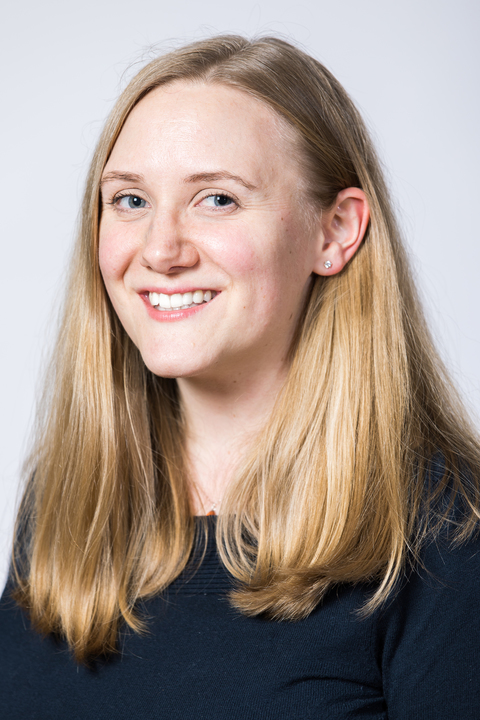
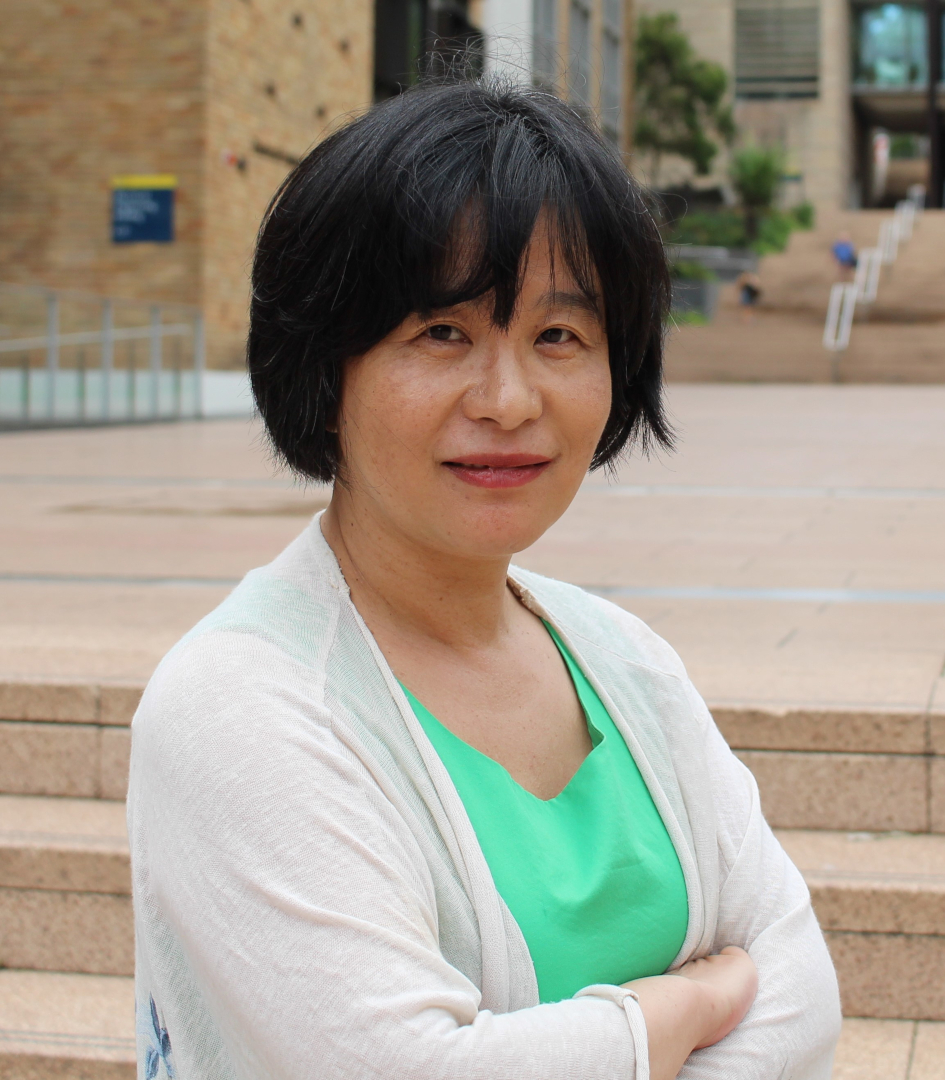
Professor Guangzhao Mao
Head of the School of Engineering | Chair Professor of Materials Engineering
Professor Guangzhao Mao is a leading innovator in nanotechnology and materials engineering, shaping the future of nanomedicine and advanced sensor systems. As Head of the School of Engineering at the University of Edinburgh, she spearheads cutting-edge research that bridges engineering and medicine, unlocking groundbreaking possibilities in drug delivery and nanoscale material applications.
Her pioneering research focuses on two transformative areas:
Electrocrystallization & Nanosensors. Her research unravels the fundamental processes of nucleation and crystal growth in electrodeposition, applying these insights to develop next-generation gas sensors. Her work enhances sensor scalability, with impactful applications in medical diagnostics, environmental monitoring, and industrial automation. Her breakthroughs in integrating nanosensors into larger systems are redefining their real-world potential.
Nanotechnology & Neuroscience. Merging nanotechnology with neuroscience, Mao’s team is developing revolutionary drug delivery systems targeting the central nervous system. Her protein-drug nanoconjugates offer a novel way to bypass the blood-brain barrier (BBB), a long-standing challenge in treating neurological disorders. This innovative approach has already shown promising results in enhancing respiratory function for spinal cord injury, with significant implications for neurodegenerative disease treatments. Her latest advancements include a microfluidic cell-based assay that accelerates drug screening and preclinical evaluations.
Global Recognition & Leadership
Before joining the University of Edinburgh, Professor Mao led as Head of the School of Chemical Engineering at UNSW Sydney, where she continues as an Adjunct Professor. Her global influence is reflected in prestigious accolades, including:✔ Fulbright Senior Scholarship✔ Visiting Professorship at the Max Planck Institute of Colloids and Interfaces✔ Fellow of the American Institute of Chemical Engineers (AIChE)✔ Career Award from the U.S. National Science Foundation
With an impressive track record of driving scientific innovation, Professor Mao continues to push the boundaries of chemical & materials engineering, shaping the next generation of engineering solutions with real-world impact.
B.Sc., Ph.D.
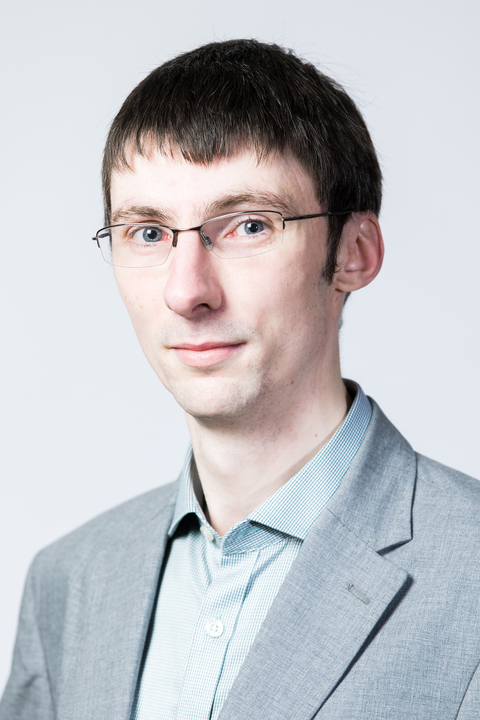
- PhD in Process and Chemical Engineering, University College Cork, Ireland, 2011
- BE in Process and Chemical Engineering, University College Cork, Ireland, 2008
- Chartered Member, Institution of Chemical Engineers (CEng MIChemE)
- Senior Member, American Institute of Chemical Engineers (MAIChE)
- Member, Engineers Ireland (MIEI)
- Chemical Engineering Design 3 (CHEE09015)
- Engineering Principles 1 (SCEE08012)
- Supervisor of study projects, undergraduate research projects and industry placements
My research focuses on the simulation of systems of granular materials. This has broad applicability including in both the chemical engineering (pneumatic conveyors, silos, granulators) and civil engineering (dams, sand element tests) disciplines. My research also includes improving the fidelity and performance of the simulation tools, in particular of the discrete element method (DEM).
Granular materials are ubiquitous. Around three-quarters of the raw materials used in industry are in a particulate form. Lots of economically significant, and safety-related, problems remain in handling these materials. Another example of a granular material is the soil beneath our feet; understanding the behaviour of the constituent particles has implications for ensuring the safety of structures.
The use of simulation tools such as DEM to study huge particulate systems has become increasingly viable as computational power has become cheaper. A major advantage of simulations is the ready availability of information which is difficult, if not impossible, to measure experimentally such as the forces acting on each individual particle at tiny time intervals. However, physical experiments remain essential to supplement the simulations, e.g., for calibration of model parameters and validation of any implemented model.
- Project Lead of CCC-ParaSolS: if you have an interest in simulations of granular materials and if you are based in the UK, why not join our Collaborative Computational Community in Particulate Solids Simulations?
- Our fork of LAMMPS which includes various additions of use for soil mechanics simulations is now available on GitHub as geoLAMMPS.
Research Profiles
- Discrete element method (DEM)
- Simulation of granular soil behaviour
- Attrition/wear of solid materials
- Pneumatic conveying of powders
I welcome enquiries from any prospective student with the appropriate engineering/science background who is interested in undertaking a PhD. Note that unless a project is advertised which specifies that funding is available, PhD funding would need to be secured in advance through a scholarship, sponsorship of the PhD, e.g., by industry, or self-funding.

My group is interested in using materials science to achieve solutions that find applications in chemical engineering, particularly in separations.
We specialize in the design and synthesis of porous frameworks using cost-effective commercial materials. These nanomaterials are used for applications including hydrocarbon purification, energy storage, alcohol recovery and dehydration, and water purification. These materials can be deployed as adsorbents or as additives in polymer membranes.
Moving into a new era of membranes, we also use nanotechnology to fabricate elegant membrane structures to achieve ultrafast molecular separations that require minimal driving forces during operation.
Our aim is to see deployment of our membranes in the real-world. The research underpinning this thrust is scale-up production of materials including polymers and additives. We devise new techniques that are suitable for producing cutting-edge materials from the University of Edinburgh and our international collaborators.
- Bachelor of Science in Nanotechnology (2nd Upper Class)
- Ph. D. in Chemical and Biomolecular Engineering
- Polymer membrane separations
- Nanotechnology
- Scale-up production and application of porous frameworks
- Polymer characterisation
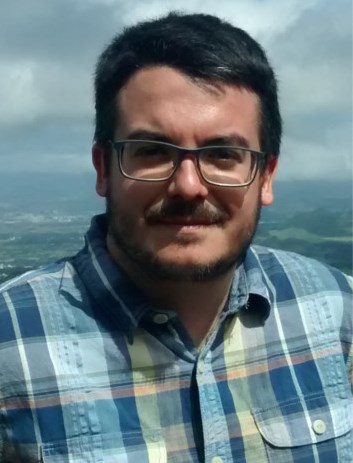
Join our research group
Interested in joining a young research group conducting cutting-edge research at a World Top 50 university? We are always looking for people who shar our passion for science and engineering. Please have a read of the 'Further Information' section below for any current vacancies and PhD projects currently available and contact Dr Tudela-Montes if you want to discuss any potential opportunities.
Bio
Applied Electrochemistry has always been at the core of Dr Ignacio Tudela-Montes' work since his early research days. Whether it was the development of novel sonoelectrochemical methods to remediate polluted drinking water, the manufacture of anode materials for electrochemical processes, the design and optimisation of electrochemical reactors for different applications or the development of novel tribological materials and the evaluation of their corrosion performance in non-conductive oils, Electrochemistry has always been an intrinsic part of his research career.
Dr Tudela-Montes started his research career in April 2007 as part of the former NDTESB Research Group (New Technological Developments in Electrochemistry: Sonoelectrochemistry and Bioelectrochemistry) under the direction of late Dr José González-García at the University of Alicante, Spain, where he was at the core of the research performed on the design and development of electrochemical and sonoelectrochemical processes for different applications.
In June 2011, Dr Tudela-Montes joined Daido Metal – European Technical Centre UK (ETC UK) as a Materials Researcher involved in a Knowledge Transfer Partnership (KTP) project between Coventry University and Daido Industrial Bearings Europe (UK subsidiary of Daido Metal) aiming at the development of novel materials for engine bearing applications. During the KTP he also started his PhD degree, fully sponsored by Daido Metal, which he completed in June 2015. After completing his PhD, he became Senior Materials Researcher at Daido Metal – ETC UK where he led the team responsible for the development of novel material solutions and manufacturing processes for engine bearing and other tribological applications ranging from crankshaft bearings for the automotive industry to large bearings for industrial, power generation and marine engines.
Since July 2018, Dr Tudela-Montes leads research in the area of Electrochemical Engineering as part of the Institute for Materials and Processes within the School of Engineering at the University of Edinburgh. He is also founding lecturer of Electrochemical Engineering within Chemical Engineering, actively driving forward educational and mentoring activities for Chemical Engineering students within the School of Engineering.
PhD in area of Functional Materials - Coventry University (2015) Thesis: Novel Ultrasound-assisted electrodeposited Nickel-based coatings for bearing applications
BEng in Chemical Engineering (equivalent) - University of Alicante (2008)
Royal Society of Chemistry Member - MRSC
Institution of Chemical Engineers Associate Member - AMIChemE
The Electrochemical Society Member
Chemical Engineering (BEng and MEng): - Electrochemical Engineering 5 (CHEE11028) - Course organiser
Advanced Chemical Engineering (MSc): - Electrochemical Engineering MSc (PGEE11177) - Course organiser
Postgraduate Students
Current opportunities - PhD project: Fabrication of electromechanically active electrodes for miniaturised electrochemical devices (self-funded, information about scholarship opportunities below). - PhD project: Ammonia-based ionic liquids for chemical conversion of CO2 (self-funded, information about scholarship opportunities below). - PhD project: Electrochemical preparation of electrocatalysts for the electrochemical conversion of CO2 (self-funded, information about potential scholarship opportunities below).
We are always looking for outstanding prospective students who are interested in conducting a PhD project in our research areas of interest. Self-funded students are welcome to contact Dr Tudela-Montes and discuss potential PhD project topics (information on entry requiremenets, fees and costs is available here). Outstanding applicants with a very strong academic background can also consider applying for one of the several scholarships that may be available for funding PhD studies (please see list with examples below). Exceptional candidates may also be considered for full PhD scholarships from the School of Engineering. - Principal's Career Development PhD Scholarships - Carnegie PhD Scholarships - Perfect Storms: Leverhulme Doctoral Scholarships - Edinburgh Global Research Scholarship (for high quality overseas students only) - China Scholarships Council/University of Edinburgh Scholarships (for Chinese nationals/residents only)
Interational students are also encourage to explore applying for scholarships to conduct PhD studies abroad from their national and regional goverments. Please find below some examples: - CONICYT | Becas de Doctorado - Becas Chile (for Chilean nationals/residents only) - CONACYT | Becas de posgrado en el Extranjero (for Mexican nationals only) - SSMS Scholarchips (for candidates from Punjab/Pakistan only) - La Caixa - Becas para Estudios de Posgrado en Europa (for Spanish nationals only)
